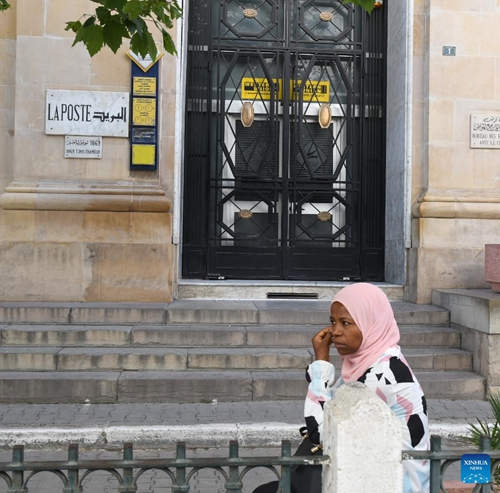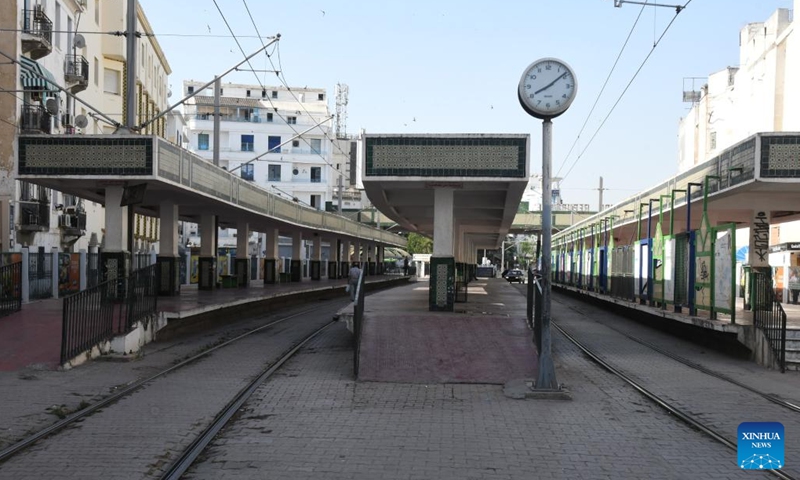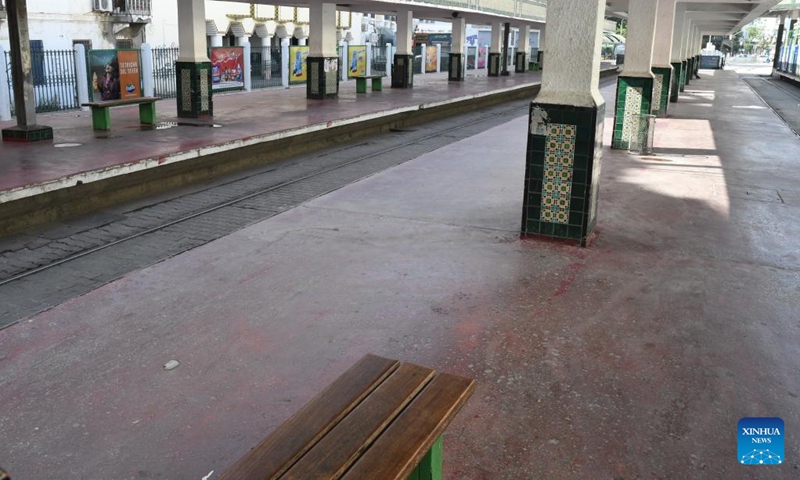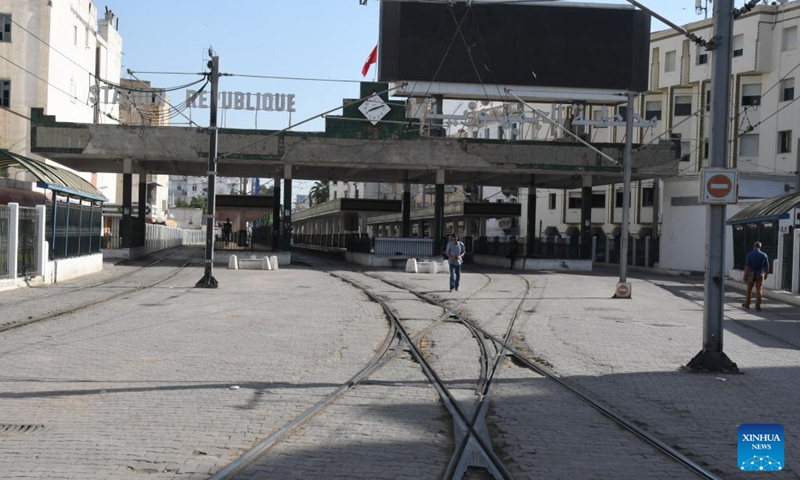
A pedestrian passes a closed post office in Tunis, Tunisia, on June 16, 2022. Tunisian public sector workers held a general strike covering 159 public institutions on Thursday, in protest of the government's refusal of their demands for rising wages.(Photo: Xinhua)

Photo taken on June 16, 2022 shows an empty railway and bus station in Tunis, Tunisia. Tunisian public sector workers held a general strike covering 159 public institutions on Thursday, in protest of the government's refusal of their demands for rising wages.(Photo: Xinhua)

Photo taken on June 16, 2022 shows an empty railway and bus station in Tunis, Tunisia. Tunisian public sector workers held a general strike covering 159 public institutions on Thursday, in protest of the government's refusal of their demands for rising wages.(Photo: Xinhua)

Photo taken on June 16, 2022 shows an empty railway and bus station in Tunis, Tunisia. Tunisian public sector workers held a general strike covering 159 public institutions on Thursday, in protest of the government's refusal of their demands for rising wages.(Photo: Xinhua)
Tunisian public sector workers held a general strike covering 159 public institutions on Thursday, in protest of the government's refusal of their demands for rising wages.
The Tunisian General Labor Union (UGTT) launched the one-day strike, which involved public institutions active in vital areas, including air and maritime navigation, land and rail transport, as well as post offices, the labor union said in a statement.
"According to our first reports, no problems or conflicts have been reported in the various public institutions involved in this general strike," Sami Tahri, deputy secretary-general and spokesperson for the UGTT, said in the statement.
Moreover, the UGTT denied any political nature of the strike, stressing that it is "a sectoral initiative which aims mainly to improve wages, protect the purchasing power of employees and put pressure on the government to respect its commitments."
The strike was decided following the failure of reconciliation between the government and the UGTT at a session on Monday when the latter rejected the program of major reforms over wages proposed by the government.
Tunisia is seeking a 4-billion-U.S. dollar loan from the International Monetary Fund to avoid bankruptcy. To this end, the North African country is required to implement deep reforms including freezing wages, cutting energy and food subsidies and privatizing some state companies, which have incurred opposition from the labor union.
